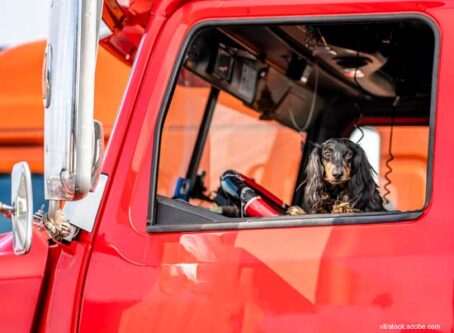Who to blame for the ELD mandate
Oozing up from the Arkansas Trucking Association in the early 2000s, the ELD mandate law had more than one father, at least according to a guy named Lane Kidd, then the association’s executive director. Lane was not one of the mandate’s fathers, but he was definitely its uncle. We’ll come back to that.
Uncle Lane remains its most vocal booster. Recently, he defended the mandate in a kind of face-off with OOIDA’s Todd Spencer. Heavy Duty Trucking magazine asked both to answer the same set of ELD questions. Neither got to see the other’s answers until publication. It was not a debate.
Things were polite and strictly about the issue until Lane said, “The only industry segments crying for more time (before implementation) are those companies that want to avoid the law.”
Beg your pardon, Lane, but what?
That’s what’s called an ad hominem argument – fancy Latin for attacking the person rather than the issue. In this case the person is the “industry segments crying for more time,” many of them represented by OOIDA. Not a person, but many people.
So does Uncle Lane have super powers that tell him what’s in everyone’s heart?
I don’t think so. In fact some of us don’t want ELDs because we operate on smaller margins than Lane’s big-fleet friends; ELDs are a new and ongoing cost.
Some of us are outraged at the government burrowing into our daily lives in this most intrusive way. Some of us, particularly long-time, accident-free drivers, feel violated by what is an assault on their dignity.
Hey, maybe some of us do want to avoid the law, just as big fleets strive to avoid taxation. I’ll bet those big companies are not thrilled about Dodd-Frank or other government reporting requirements either. I wonder how many times while dealing with big-time truckers, Lane has heard the phrase, “The government should just leave us alone and let us do our job.”
If this were a trial, Lane’s comment about “industry segments,” some represented by OOIDA, would open the door to questions about his own motivation and that of the Trucking Alliance he now fronts in Washington DC.
The ELD idea has been around for a while. Early ELD hardware was called by different names, including EOBR for electronic onboard recording. FMCSA was already considering a mandate when someone came up with the idea of having it written into law by Congress. That would hustle along the regulatory process to make it happen.
In 2009, then-Arkansas-Sen. Mark Pryor introduced legislation backed by the Trucking Alliance, the group of large truckload carriers that with a straight face formally calls itself the Alliance for Driver Safety & Security. Their purpose, certainly at that time, was to get the ELD mandate passed into law and implemented by the FMCSA.
Their managing director? Lane Kidd.
Driver safety? It was really about competition and what they called “leveling the playing field.”
You see, the Alliance carriers already had or were soon going to have ELDs. An ELD mandate in law would assure that all competing carriers, especially the small, nimble ones, would have them too. They would all be equally constrained.
So why did the big carriers go for ELDs?
The Arkansas Trucking Association, Uncle Lane’s group, had supported ELDs for a while, first adopting a pro-ELD policy in 1999. It probably had something to do with a DOT crackdown on hours of service at the time. It was different than previous crackdowns. Those had been aimed at drivers. This one was aimed at the fleet executives that encouraged violations.
In 1996, the owner of Hanover, Md.-based Gunther Transport had been sentenced to 30 months in federal prison on charges involving driver logs. Mark Gunther was an extreme case, but the new DOT policy was clear. Log violations could be trouble for trucking executives as well as drivers.
Now I can’t be as sure of this as Lane is about those “industry elements,” but I believe the sudden interest in ELDs on the part of big trucking was this: ELDs got management off the hook.
With the HOS in effect at that time it was easy to cheat with an ELD. You simply logged unloading time as off-duty. The general perception was different though. Most believed ELDs were more-or-less foolproof. In any case, ELD logs couldn’t be altered after the fact (something Gunther had done). For most people – government officials included – ELDs all but absolved owners and executives of involvement in HOS violations. It was all on the driver.
Uncle Lane’s Driver Safety & Security Alliance wasn’t concerned about driver safety (though they’ll scream otherwise), but about the safety of their big fleet members from prosecution. But now there was another problem – all those smaller fleets without ELDs. Something had to be done about that. A federal ELD mandate was just the thing. So, big trucking’s support of the mandate wasn’t about leveling anything. It was about maintaining their advantage, and Lane Kidd was just the guy to help.









